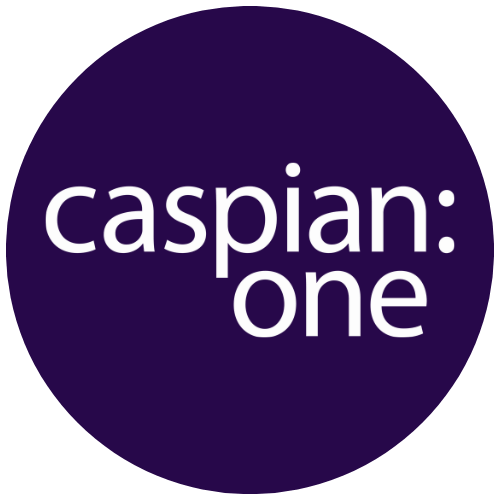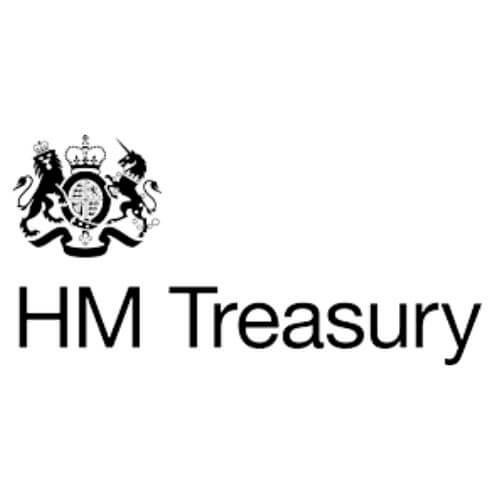
FinTech diversity
Insights on the state of play for equality, diversity and inclusion across the FinTech markets
At Caspian One we’re committed to the elimination of unlawful and unfair workforce discrimination - employing unbiased employment approaches that span our entire global operation. On this page, learn more about EDI in FinTech and gain quick access to EDI communities across the globe.
Navigation: FinTech Overview > Diversity in FinTech
“Diversity of representation and thought within finTech is vital in creating the products and services that suit the modern world. Encouraging entrepreneurs from diverse backgrounds can address gender, cultural and ethnic divisions in the provision of financial services.”
- Barclays, “Why FinTech needs diverse thinkers” 2020 article

FinTech diversity
Insights on the state of play for equality, diversity and inclusion across the FinTech markets
At Caspian One we’re committed to the elimination of unlawful and unfair workforce discrimination - employing unbiased employment approaches that span our entire global operation.
Navigation: FinTech Overview > Diversity in FinTech
“Diversity of representation and thought within finTech is vital in creating the products and services that suit the modern world. Encouraging entrepreneurs from diverse backgrounds can address gender, cultural and ethnic divisions in the provision of financial services.”
- Barclays, “Why FinTech needs diverse thinkers” 2020 article
There’s a documentary on Netflix titled Coded Bias. It follows the work of Joy Buolamwini, a Ghanaian-American computer scientist at MIt Media Lab. At the beginning of the film, we learn how Joy was developing a sci-fi inspired mirror, that would use computer vision software to overlay aspirational images onto the person viewing’s face. The problem was, the facial tracking software kept failing… that is, until she put on a white mask.
As the documentary continues we learn that the people who coded the algorithm hadn't taught it to identify a broad range of skin tones and facial structures, making it difficult to identify darker-skinned women. Her research goes on to highlight a deeper issue of AI and machine learning bias, along with the risks we face if training datasets remain skewed against certain ethnicities and genders.
Then you have Amazon’s experimental AI recruiting tool, which famously failed after the AI taught itself to prioritise male candidates and downgrade applications that included the word ‘women’s’ as in, ‘women’s college’. This happened because Amazon’s computer models were trained using resumes submitted to the company in the past decade; most of these were from men, reflecting the dominance of male employees in technical roles at Amazon.
These examples demonstrate that diverse hiring isn’t an exercise in hitting an ambiguous equality quota -
it’s about ensuring the future of technology is ethical, unbiased and in receipt of a wide variety of viewpoints from all cultures, beliefs and backgrounds.
“Fintechs may be transforming financial services in terms of tech, but the sector’s progress is distinctly less notable when it comes to tackling gender equality. In fact, the lack of diversity at C-suite level is arguably as archaic as the legacy systems the industry seeks to disrupt. The fintech sector promotes and thrives on diversity; indeed one of the key benefits of open banking and PSD2 is the ability to personalise financial products and tailor them to individual users’ needs. Yet this vision of the future in terms of product is out of step with company practices. In the UK, a mere 17% of fintech companies have female founders and women account for less than 30% of the sector’s overall workforce, according to Innovate Finance. In addition, women receive just 3% of VC funding in the sector.”
- The FinTech Times, “Where are all the women in FinTech?” 2020 article

At Caspian One we are witnessing an imbalanced FinTech market, with many people now speaking out regarding gender inequality, unconscious bias, racial discrimination and similar topics. There are many factors impacting why the financial markets are lagging behind in the diversity rankings; some are symptomatic of required changes to long-established company cultures, others align with much deeper issues.
For example, much is said about the lack of women in technical roles but it’s not always noted that only 21% of the UK’s STEM (science, technology, engineering and maths) workforce, are female - relating directly to the low numbers of girls selecting to study STEM subjects.
This fact ultimately has resulted in a reduced pool of women for FinTech’s to hire from, causing the male to female divide we see today. Fortunately, groups like Women in Tech, STEM Women and Stemette Futures are helping to inspire and nurture young women in STEM subjects across the UK, with reports indicating that the percentage of female graduates with core STEM degrees is steadily growing. In Finance, this is joined by the Women in Finance Charter - a pledge for gender balance across financial services by HM Treasury.
One issue that needs to be addressed is the idea of institutional quotas. Caspian One, whilst being firm believers in EDI, are also of the opinion that expertise should be attained on the merit of that person’s capabilities and suitability for the role, first and foremost. Seeking to hire people based only on their skin colour or gender status to meet a diversity quota or ‘balance the books’ with more women and minorities in the room, is wrong - legally and commercially.
“Diversity itself is only one part of the puzzle – inclusion is the bigger, most integral piece. If the culture of a workplace doesn’t genuinely embrace diversity of thought, the backgrounds of its staff mean nothing. Many company higher-ups commit only to diversifying their staff at the very lowest levels, and are not interested in new perspectives but in having views they already hold parroted back to them. Of the very few female executive directors in FTSE 100 companies (they make up just over 30%), 97% of them are white.“
- The Guardian, “Quotas alone can’t fix diversity - it’s time to go further” 2020 article
It’s fair to say that until recently, diversity has not been a priority to many FinTech companies. The tide is now turning as we see more examples of financial institutions prioritising D&I strategies and taking real actions promoted from the top-down.
At Caspian One we’re working in partnership with our clients to design and support these initiatives, in a systematic way that overcomes barriers to entry, educates, and results in inclusive cultures; embracing diversity and flourishing through transparent equality.
For more information on FinTech EDI and building diverse workforces with the support of Caspian One, click here to contact us or call +44 (0) 203 691 9200

Diversity principles
We recognise the value of teams that contain people from diverse backgrounds; who are encouraged to introduce fresh perspectives and contribute their personal and professional experiences.
We believe our partners must work in supportive and safe environments - with a responsibility to value and respect each other, regardless of background or status.
Professional conduct is expected to be of the highest standard, ensuring no-one is harassed, bullied or victimised. We will build a culture that values meritocracy, openness, fairness and transparency.
We are fully committed to the elimination of unlawful and unfair discrimination and value the differences that a diverse workforce brings to the organisation.
Objectives relating to fair and inclusive practices are included in all employees’ performance indicators and do form an integral part of performance reviews throughout the year.
It’s fair to say that until recently, diversity has not been a priority to many FinTech companies. The tide is now turning as we see more examples of financial institutions prioritising D&I strategies and taking real actions promoted from the top-down.
At Caspian One we’re working in partnership with our clients to design and support these initiatives, in a systematic way that overcomes barriers to entry, educates, and results in inclusive cultures; embracing diversity and flourishing through transparent equality.
For more information on FinTech EDI and building diverse workforces with the support of Caspian One, click here to contact us or call +44 (0) 203 691 9200

Diversity principles
We recognise the value of teams that contain people from diverse backgrounds; who are encouraged to introduce fresh perspectives and contribute their personal and professional experiences.
We believe our partners must work in supportive and safe environments - with a responsibility to value and respect each other, regardless of background or status.
Professional conduct is expected to be of the highest standard, ensuring no-one is harassed, bullied or victimised. We will build a culture that values meritocracy, openness, fairness and transparency.
We are fully committed to the elimination of unlawful and unfair discrimination and value the differences that a diverse workforce brings to the organisation.
Objectives relating to fair and inclusive practices are included in all employees’ performance indicators and do form an integral part of performance reviews throughout the year.
EDI resources & communities
Who did we miss?
Let us know if there’s a resource missing from our collection, email hello@caspianone.com





















